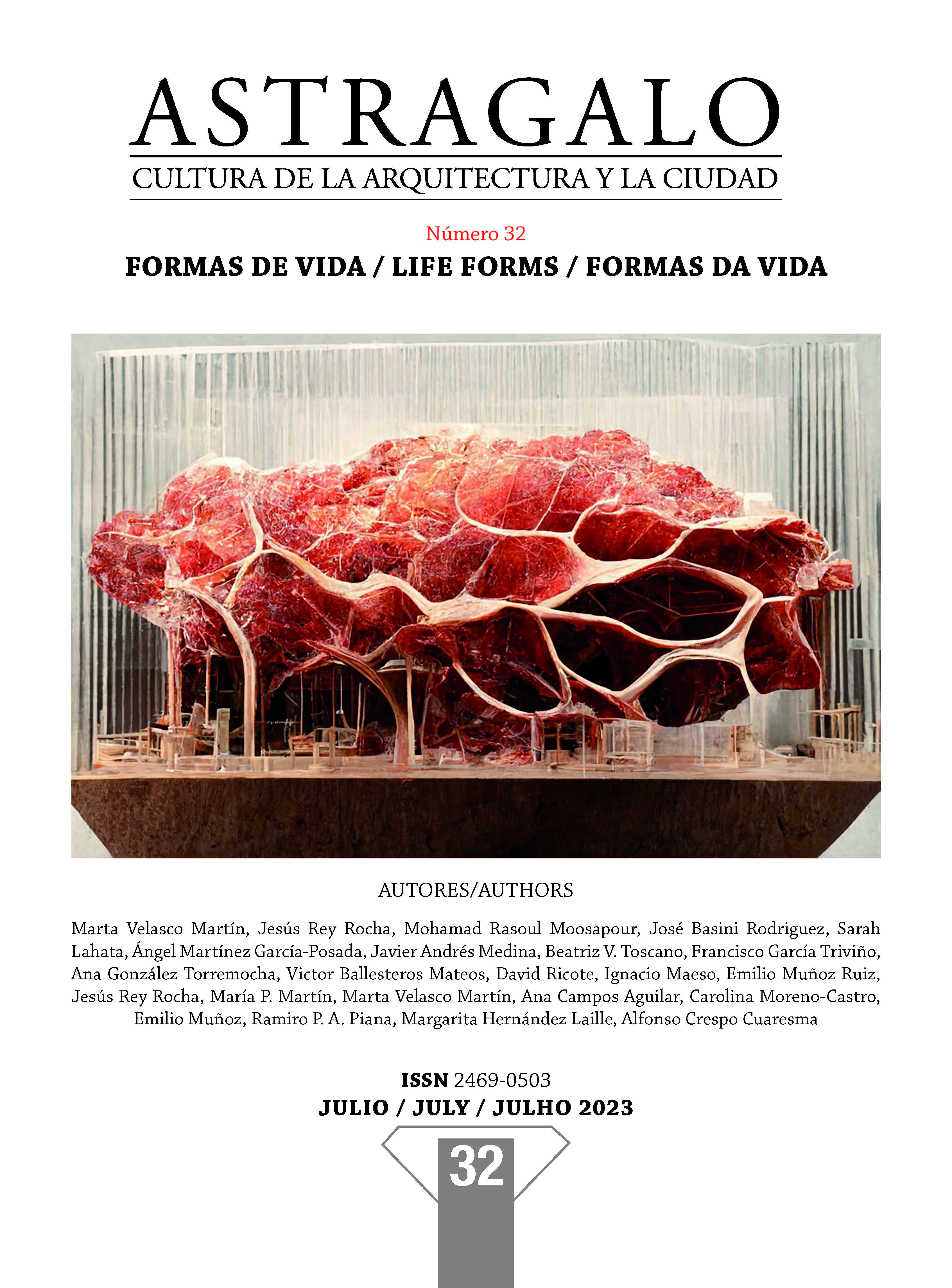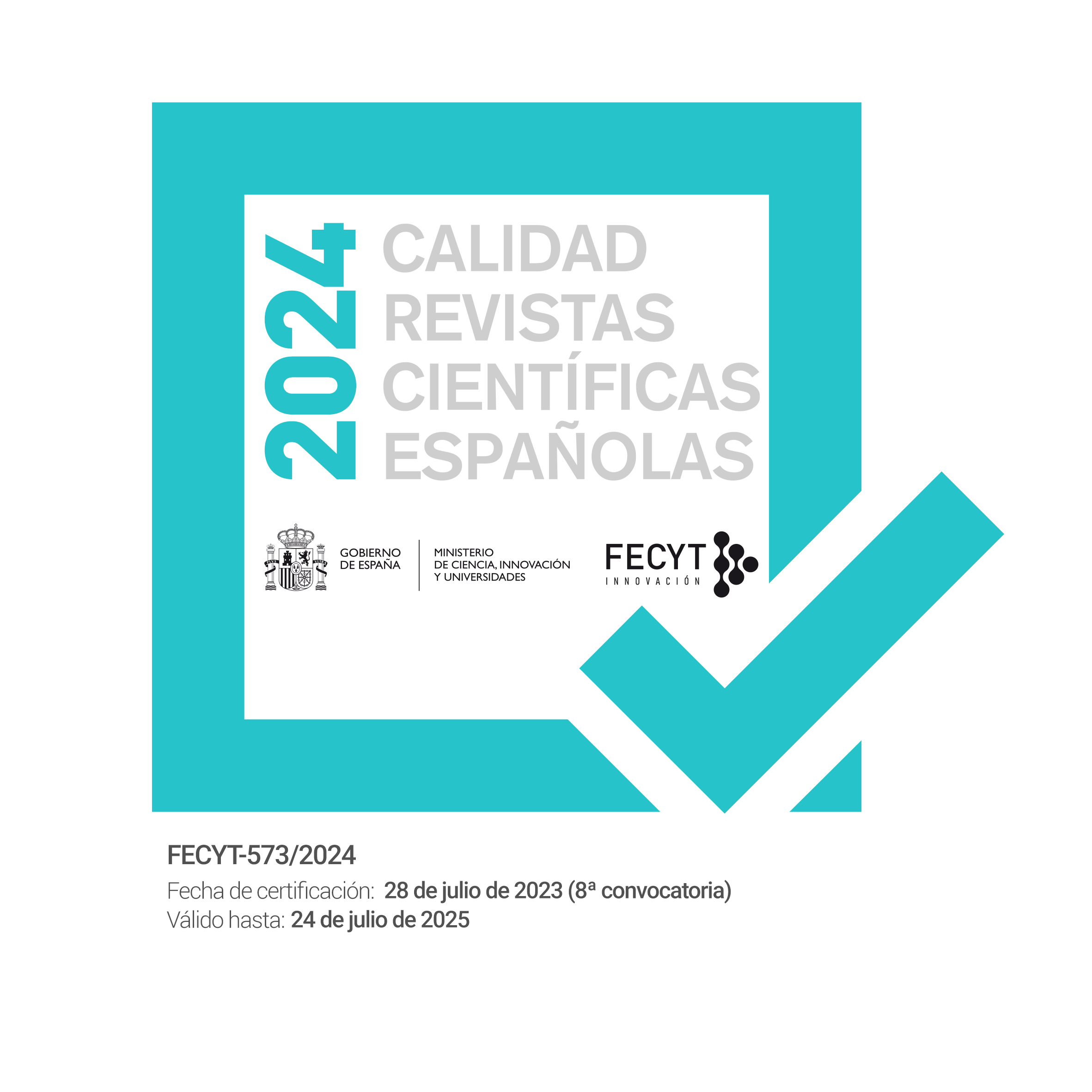Vol. 1 No. 32 (EXTRA) (2023): Life Forms

Focus:
Maintaining life on planet Earth and the well-being of its inhabitants, human and non-human, animal and plant, bacteria, protists and fungi, both individually and collectively, must be at the top of the political and scientific agendas, especially as our human actions have aggravated the climate and environmental crises in recent years.
Fifty years after the publication of The Limits to Growth report, commissioned from MIT by the Club of Rome, its message is still valid: Earth's interconnected resources - the global system of nature in which we live - are unlikely to be able to support current rates of economic and population growth of the human species well beyond the year 2100, if at all, even with advanced technology; if global population growth, industrialisation, pollution, food production and exploitation of natural resources were to continue unabated, the absolute limits of growth on Earth would be reached, in a situation that could be described as an environmental pandemic.
As the first quarter of the 21st century draws to a close, the human species is facing what we might call an anthropic paradox, for despite the evidence of its contribution to the overexploitation of the planet's resources and the worsening conditions for life on the planet, it is confronted with the yearnings and ambitions of its species to transcend its human condition, to improve life as we know it and, eventually, to become a creator of life. Faced with this situation, some models of societies seem unable to find institutional referents and personal models that provide the certainties and confidence necessary to feel the security on which to live. Moreover, they must face increasing levels of complexity, since not only are there multiple options to choose from, but their advantages and disadvantages are not always clear, are not comparable or are even contradictory (or appear to be so), in other words, they are faced with various trilemmas and plurilemmas.
The monograph 'Life Forms' addresses this anthropic paradox by studying the challenges, impacts and social and philosophical implications of research on the origins, (co-)evolution, diversity and synthesis of life from a multidisciplinary, integrative and collaborative approach that calls upon the expertise of a wide range of disciplines - from the Life, Physical and Chemical Sciences, through Engineering, to the Social Sciences and the Humanities─. We believe that the understanding - and control - of life, from the (sub)cellular to the organismal and systems scale, requires philosophical, ethical, political and social reflection, due to the possible impact of the application of the technologies that make this possible and the results of research in this field; that is, due to the impact of science, technology and human activity, on its own life and on the conditions for life on planet Earth - and eventually on its satellite and other planets. Thus, the development of purely scientific and technological aspects, accompanied by a constant and simultaneous ethical and philosophical evaluation of research, allows the analysis of the progress made and expected, of its implications and social challenges, of its repercussions, benefits, impacts and problems, of its safety and biosafety, of its risks, and of its cultural implications. Furthermore, we believe that the participation of society in them must be considered. We cannot neglect, in this context, the role of citizens: how they are and will be affected and their eventual involvement.
The idea of compiling these reflections in the form of a monograph arose at the meeting "Challenges, impacts and social implications of research on life. Let's think, and reflect together to act" that was held at the Casa de la Ciencia in Seville in May 2022, sponsored by the CSIC's Life-Connections network (LifeHub). This meeting allowed interaction and dialogue between professionals trained in different experimental and social fields, directly or indirectly related to life sciences. For this reason, 'Formas de vida' has been designed to be built in a cooperative way, thanks to the interaction and collaboration of different authors. The monograph is thus conceived as an exercise in dialogue between sciences and cultural disciplines, with the aim of contributing to show the need for this dialogue in order to generate a broader and more innovative vision, capable of evolving in the face of the wide range of changes that are occurring in this first quarter of the century.
Astrágalo already published an issue dedicated to this topic in 2017, under the title Elusive city. Forms of life and modes of existence [https://editorial.us.es/es/num-23-2017]. With this new issue, we intend to revisit the theme 'Ways of life', treating it from a perspective that results from the combination in interaction between the Life, Physical and Chemical Sciences, Engineering, Social Sciences and Humanities, through the research tools that are specific to them, without forgetting the interactions with the architectural, spatial, cultural, urban, geographical and artistic spheres, which are the journal's own themes.
Guest editors:
Marta Velasco Martín
Assistant Professor in the Department of Medical Sciences, University of Castilla-La Mancha (UCLM) and researcher in the Health, History and Society group of the Regional Centre for Biomedical Research (CRIB, UCLM). LifeHUB.CSIC Network
Degree in Biology (Universidad Autónoma de Madrid), postgraduate degree in Interdisciplinary Gender Studies (Universidad Autónoma de Madrid) and PhD in Logic and Philosophy of Science (Universidad de Salamanca, Instituto de Filosofía del CSIC). Her doctoral thesis entitled "Drosophila genetics and gender: circulation of objects and knowledge" obtained the qualification of outstanding cum laude and Extraordinary Doctoral Prize for the 2018-2019 academic year. Her lines of research address the history of women scientists; the study of the influence of gender in the construction of biomedical knowledge and in cultural and historical studies of science and technology; and the social construction of disease in the 20th and 21st centuries, as well as collective responses and the establishment of measures to combat them from a gender perspective.
Jesús Rey Rocha.
Department of Science, Technology and Society. Institute of Philosophy, Spanish National Research Council. (IFS, CSIC). Red LifeHUB.CSIC.













